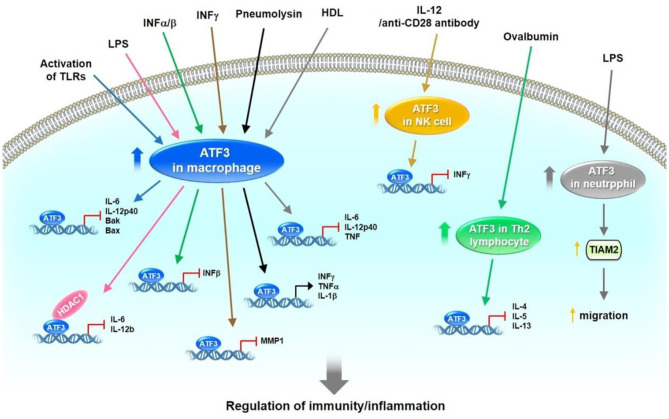Figure 3.
The role of ATF3 in host defense by the regulation of immune responses. In immune cells, such as macrophages, NK, Th2 lymphocyte and neutrophil cells, ATF3 is expressed at low levels. After activation of these immune cells by different signaling pathways initiated by TLRs, LPS, IFNα/β/γ, pneumolysin, IL-12, anti-CD28 antibody and ovalbumin, ATF3 was upregulated. Subsequently, ATF3 downregulates the expression of target genes, including cytokines (IL-1β, IL-4, IL-5, IL-6, IL-12p40, IL-12b, IL-13, TNF, IFNβ/γ) and pro-apoptotic gene (Bak and Bax) by binding to the promoters. In addition, ATF3 enhanced neutrophil chemotaxis via TIAM2 expression Collectively, these observations demonstrate that ATF3 plays an important role in regulating immune responses and maintaining normal host defense.

